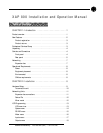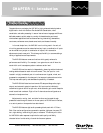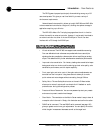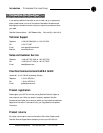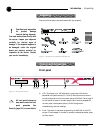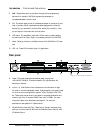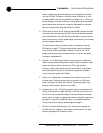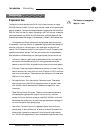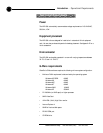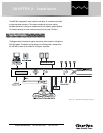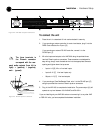
Introduction ~ New Features
2
Technical Services Group ~ 1-800-283-5936 (USA) ~ 1-801-974-3760
The GPIO (general purpose input/output) allows switching among any of 32
user-stored presets. This gives you real-time flexibility to meet a variety of
reinforcement requirements.
Network-based interconnectivity allows up to eight XAP 800s and XAP 400s
to be connected and controlled as a single unit, allowing microphone coverage in
applications requiring up to 64 mics.
The XAP 800’s Macro Pro™ scripting language allows the unit to function
without the need for an external controller. However, it can be easily interfaced to
an external controller via either of the two RS-485 ports. The unit can also
interface with a PC through the RS-232 port.
New Features
• Virtual references. The XAP 800 now supports echo cancellation summing.
Four user-definable virtual references are provided which can use multiple
signals as the echo cancellation reference point without sacrificing an analog
output. This added flexibility further enhances echo cancellation performance.
• Improved noise cancellation. Our industry-leading noise cancellation keeps
background noise to a minimum while retaining top-level voice quality, echo
cancellation performance, and full-duplex capability.
• Front panel gain and mute control. Now gain and mute adjustments can
be made from the front panel. Using these controls allows you to make
quick volume and mute changes without connecting through G-Ware.
• Safety Mute. The new Safety Mute button on the main G-Ware toolbar
allows you to mute all outputs with one simple click if feedback or audio
problems occur during the configuration process.
• Preset and Macro Passwords. You can now password protect your presets
and macros to prevent unauthorized changes.
• Clear Matrix. This new button on the Matrix Screen makes it easy to clear all
cross point cells in the matrix. Simply click the button and confirm the action.
• RAMP serial command. The new RAMP serial command (see page 123)
gives you greater control over gain adjustments. You can specify the rate at
which the gain increases and decreases as well as the target level.





